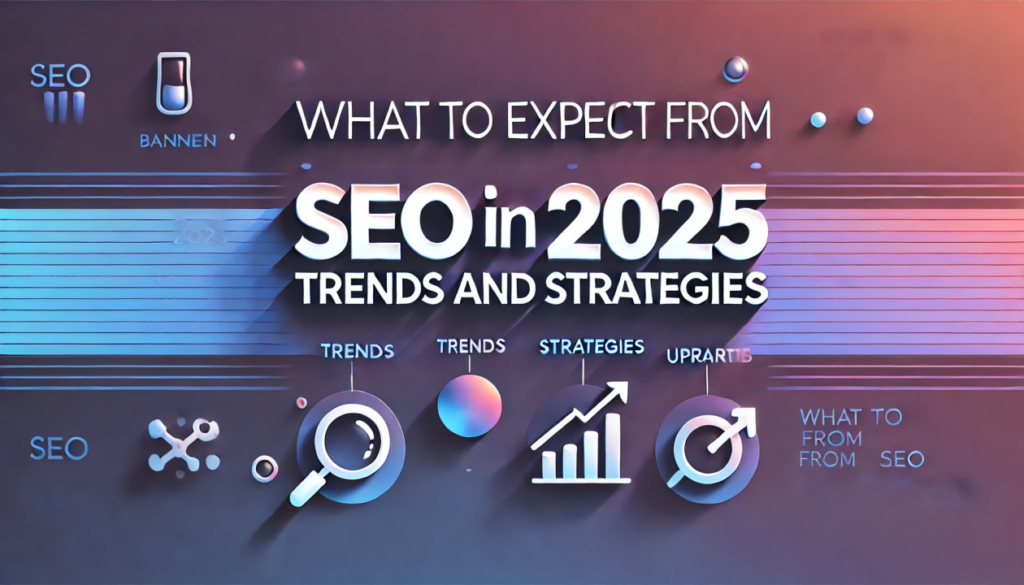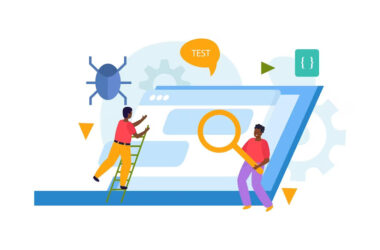
Image Source- FreePik
As we approach 2025, Google’s CEO has made waves by discussing how the search geography will change, especially with the integration of AI-driven technologies like Gemini. In a recent address to employees, the CEO suggested the team accelerate the rollout of Gemini to customers, signaling an evolution that could redefine how people interact with Google Search. While Google is testing cutting-edge AI features like Gemini 2.0-powered AI Overviews in Search. Here’s a closer look at the changes coming to Google Search, as well as what it all indicates for SEO and digital marketing shortly.
AI-Driven Changes: The Rise of Gemini

Image Source-Google
One of the most talked-about stories in Google’s plans is the Gemini AI initiative. Google has already begun testing Gemini 2.0, which is designed to deliver AI-powered overviews directly within Google Search. This will provide users with brief, accurate summaries and personalized insights based on their search queries. With the CEO’s recent priority on scaling Gemini for consumers in 2025, we can hope for a future where search results are not just a list of links but include detailed, AI-generated summaries, context, and answers to questions before a user even clicks a link.
Beyond summaries, the integration of AI could also usher in new search modes, like an “AI Mode” in Google Search. This means users might interact with search results more conversationally, using prompts that allow the AI to generate replies instead of simply showing a list of web pages. Google’s focus on Gemini could fundamentally change how users search for and digest information online, providing faster, more relevant insights, and directly competing with other AI-driven search engines and virtual assistants.
The Ongoing Indexing Issues: Challenges Remain
While Google pushes forward with new innovations, the company has faced some challenges with its core infrastructure. In December, Google Search encountered yet another indexing issue, which affected search results for some users and delayed updates to Google’s vast index of webpages. Additionally, Google Lens, the visual search tool, experienced serving issues last month, further highlighting some of the backend complexities that come with maintaining such a massive search engine ecosystem.
Despite these hiccups, Google continues to enhance its Search Console to help webmasters and SEO professionals monitor and troubleshoot issues. The latest feature, the 24-hour view, allows users to see how their websites are performing in real time, providing more transparency into search performance. This tool could help identify and address issues quickly, ensuring websites stay on top of any indexing or serving problems that could impact visibility.
Personalization: A New Era of Custom Search
There are also rumors that Google is working on personalizing search results more than ever before. This follows speculations from the previous month about potential changes in how Google tailors search results to individual users. Personalization has been a growing focus for Google, and AI models like Gemini could take this to the next level by creating highly tailored search experiences based on user behavior, search history, and even specific preferences.
As AI becomes better at understanding intent and context, Google Search could adapt to be more predictive, delivering results that are closer to what users might want before they even explicitly search for it. This is especially important as Google competes with platforms like Amazon and social media networks, which are becoming more personalized in their recommendation algorithms.
SEO Changes on the Horizon: Ranking Signals and Reputation Abuse

Image Source-Google
In the world of SEO, changes to ranking algorithms are always a hot topic. Google has recently made headlines by introducing new FAQs regarding site reputation abuse. This change aims to combat unethical practices such as link farming, fake reviews, and manipulative tactics that have been used to artificially boost site rankings. These new FAQs could mark the beginning of more stringent quality signals being incorporated into Google’s algorithms, with a particular focus on how well sites manage reputation and trustworthiness.
This could have profound implications for content creators, including freelance writers. Companies like Forbes may tighten their editorial standards, cutting freelancer contributions if they fail to meet these stricter guidelines. As search engines become more refined at detecting spammy practices, content creators will need to prioritize quality and authenticity over quantity.
The Future of SEO: What We Can Expect
With all of these changes on the horizon—AI-powered search, indexing improvements, personalization, and potential shifts in ranking factors—2025 promises to be a transformative year for SEO. Digital marketers and website owners will need to stay on top of these trends to ensure that they’re optimizing their sites for both traditional search methods and emerging AI-driven features.
In summary, Google’s plans for 2025 are shaping up to bring exciting innovations, but also new challenges. The rise of AI like Gemini, combined with ongoing indexing issues and a new focus on reputation, will undoubtedly reshape the way we approach SEO and digital marketing. By staying ahead of these trends and adapting to Google’s evolving algorithms, businesses can ensure they remain competitive in the ever-changing search landscape.
Conclusion
As we look ahead to 2025, it’s clear that Google Search is on the brink of major transformation. With the introduction of advanced AI technologies like Gemini, improvements in personalization, and ongoing backend optimizations, the way users interact with search engines is evolving rapidly. While these developments promise a more intuitive, efficient, and user-centered experience, they also come with challenges. For businesses, content creators, and SEO professionals, adapting to these changes will require agility and foresight.
The AI-driven overviews, new ranking signals, and personalization updates suggest that the future of SEO will be more complex than ever. Those who focus on creating high-quality, relevant content and who stay informed about Google’s updated evolving guidelines will be better positioned to thrive. At the same time, SEO professionals will need to stay vigilant, keeping an eye on Google’s occasional indexing issues and addressing any concerns around reputation management, which could have far-reaching consequences for site rankings.
Ultimately, the evolution of Google Search offers both exciting opportunities and new hurdles. As we head into 2025, the key will be balancing innovation with a commitment to authenticity, user experience, and quality—ensuring that both search engines and websites continue to provide real value to users in an increasingly AI-powered digital landscape.








